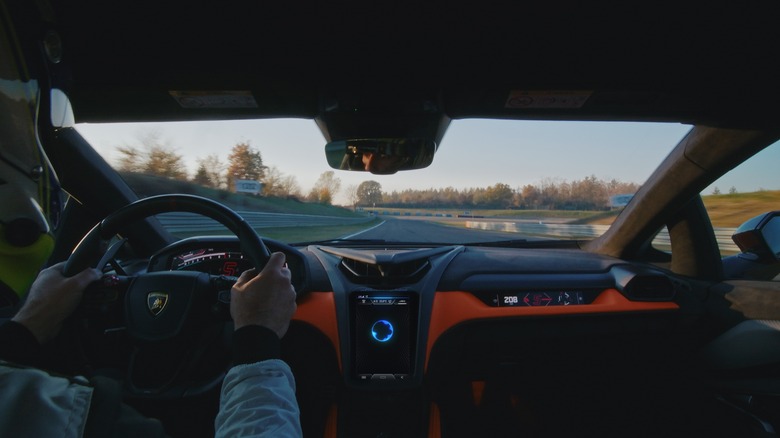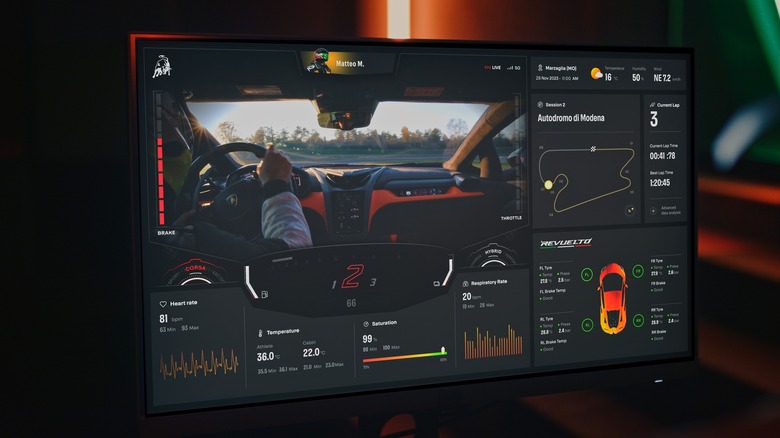CES 2024: Lamborghini's Future Supercars Won't Just Make Your Heart Race, They Could Track It, Too
The sight of a Lamborghini can leave hearts racing, but the luxury carmaker is more interested in measuring the heart rate of the driver behind the wheels. At CES 2024, Lamborghini introduced Telemetry X, an in-car digital information platform with a built-in Biometric Data System. Lamborghini says it can assess a driver's crucial biometric stats such as heart rate and stress levels while driving, paving the way for a more in-depth performance analysis.
It will work in tandem with a digital assistant that keeps an eye on biometric information as well as vehicle sensing data to offer customized driver feedback in real-time. "Digital Co-Pilot analyzes lap times and provides useful pointers for improving racing lines and braking points," says the company. At the moment, Telemetry X is a concept envisioned to exist within the Unica app, which also appeared inside the Huracán STO a few years ago.
Developed in collaboration with Accenture, the biosensing system and in-car assistant will piggyback on a 5G-ready toolkit called Real Time Remote Garage that will transmit information such as video recordings to a coach anywhere in the world. Lamborghini envisions Telemetry X to assist with training, but won't say when exactly we are going to see it in a commercially available hypercar.
It's a great idea
Lamborghini's Telemetry X heart rate sensing capability sounds impressive, but the Italian carmaker won't be the first to explore the idea. Omron, which developed an in-vehicle pulse sensor, notes that pulse rate is a key biomarker for assessing a driver's health status. Omron considers it instrumental for determining the driver's stress level and can also deploy it to alert drivers if they are falling asleep.
At CES 2023, Samsung-owned Harman showcased an advanced driver-monitoring system that could measure the breathing as well as heart rate of the driver. In 2020, Ford began testing heart rate sensors embedded inside car seats. A patent filed in 2019 describes a "smart seat belt" with a heart rate sensor inside to detect abnormal events such as the driver undergoing a cardiac arrest or getting into an accident.
A research paper published in the Internet of Things journal also ascertains the benefits of fitting a cloud-connected heart rate system inside a car, the kind Lamborghini aims to integrate with the Telemetry X infotainment system. Stanford experts have also explored the idea, and Toyota is working on it, as well.
A heartbeat detection system, which integrates advanced sensors and complex software, can be used to sense the presence of a person inside a locked car, which is expected to be unoccupied. This technology primarily aims to identify situations like a child being accidentally left inside the vehicle but it can also be effective in discovering unwanted stowaways in a car.

